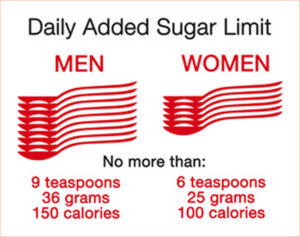The calorie calculator, also known as the TDEE calculator, will help you figure out how many calories you should consume every day – or where you should start if you wish to gain or lose weight. In this post, you’ll learn not only about the formulae used by our calorie counter, but also about the foods to eat in order to lose weight safely.
How many calories should I eat a day?
Many factors influence the recommended calorie intake, or TDEE (Total Daily Energy Expenditure). They’re simple to measure, and you’re probably already aware of some of them: your age, height, weight, and sex. Others, such as your level of physical activity, are qualitative rather than quantitative, but they may still be measured and classified. Other factors, such as your metabolism or overall health, are harder to predict. As a consequence, even while our calorie calculator accounts for the majority of factors that determine the number of calories you require each day, the results may not be completely correct. Consider it more of a suggestion than a strict rule.
What are calories, exactly?
Calories are a unit of energy measurement. A calorie is about equal to 4.18 joules.
In the field of nutrition, kilocalories (kcal) are used, with 1 kcal equaling 1,000 “small” calories. 1 kcal = 4.18 kJ, as you might anticipate. (Like almost every other healthy diet page on the Internet, this item refers to kilocalories as “calories.”)
Trying to lose weight? Eat eggs!
If you’re on a diet or just want to eat healthy, eggs are a good choice. They’re high in nutrients, have no dangerous ingredients, are inexpensive, fill you up faster than other foods, and, most significantly, are low in calories. A small egg (38 g) has 54 calories, whereas a medium egg (44 g) has roughly 63 calories. A big egg (50 g) has roughly 72 kcal, with the yolk comprising around 55 kcal and the white holding the remaining 17 kcal. That’s insignificant! Especially when you consider the nutritional powerhouse that each egg provides:
How our food calorie calculator works
The Mifflin – St Jeor equation is used in the calorie calculator. It allows you to calculate your Basal Metabolic Rate (BMR), which is the amount of energy your body requires to maintain only its most basic necessary tasks. It varies depending on whether you’re a man or a woman:
BMR(men) = (10 * weight / 1kg + 6.25 * height / 1cm - 5 * age / 1 year + 5) kcal / day
BMR(women) = (10 * weight / 1kg + 6.25 * height / 1cm - 5 * age / 1 year - 161) kcal / day
After you calculate your BMR, you need to multiply it by a factor
corresponding to your physical activity level:
- Sedentary lifestyle (little or no exercise): 1.2
- Slightly active lifestyle (light exercise or sports 1-2 days/week): 1.4
- Moderately active lifestyle (moderate exercise or sports 2-3 days/week): 1.6
- Very active lifestyle (hard exercise or sports 4-5 days/week): 1.75
- Extra active lifestyle (very hard exercise, physical job or sports 6-7 days/week): 2.0
- Professional athlete: 2.3
Calorie counter, TDEE, and losing weight
Each pound of body fat stores around 3500 calories (of course, this is the average amount). If you want to lose a pound a week, you can simply calculate that you need to reduce your daily calorie consumption by 500 calories. Similarly, if you want to gain weight, adding 500 calories to your daily diet can help you gain one pound every week. Remember that you may achieve this calorie deficit by either eating less or increasing your total daily energy expenditure (TDEE) through exercising.
You should never restrict your diet to less than 1000 calories each day. If you’re a woman, you should never eat less than 1200 calories per day, and if you’re a man, you should never eat less than 1800 calories per day.
What to eat to lose weight
If you are interested in the topic of healthy nutrition, you should give them a look – this document is full of valuable information.
- All – or almost all – nutritional needs should be met from foods. In some cases, you may use supplements, but never settle for substituting your food with them.
- Consume less than 10 percent of calories per day from added sugars.
- Consume less than 10 percent of calories per day from saturated fats – use oils instead. They provide essential fatty acids and vitamin E.
- Consume less than 2,300 milligrams (mg) per day of sodium. Its primary source is salt.
- If you drink alcohol, don’t exceed one drink per day for women and two drinks per day for men. Drink only if you are of legal drinking age.
- Eat a lot of vegetables – don’t leave out any of their subgroups. They are a source of fiber, potassium, vitamins A, C, K, E, B6, magnesium, iron and other nutrients.
- Consume a lot of fruits, especially whole fruits – they provide, among many others, dietary fiber, potassium, and vitamin C.
- Grains, at least half of which are whole grains, are also good for you.
- Consume fat-free or low-fat dairy, including milk, yogurt, cheese, and/or fortified soy beverages. They are your primary source of calcium.
- You should also consume a variety of protein foods, including seafood, lean meats and poultry, eggs, legumes (beans and peas), nuts, seeds, and soy products. Meats, poultry, and seafood provide heme iron, which is more bioavailable than the non-heme iron found in plant sources.
- It’s always better to eat regular meals – try to plan them in advance and limit snacks to a minimum.
- Remember that there are multiple ways to plan out your diet. A balanced vegetarian diet can be as nutritional for an adult as a meat-based diet.


